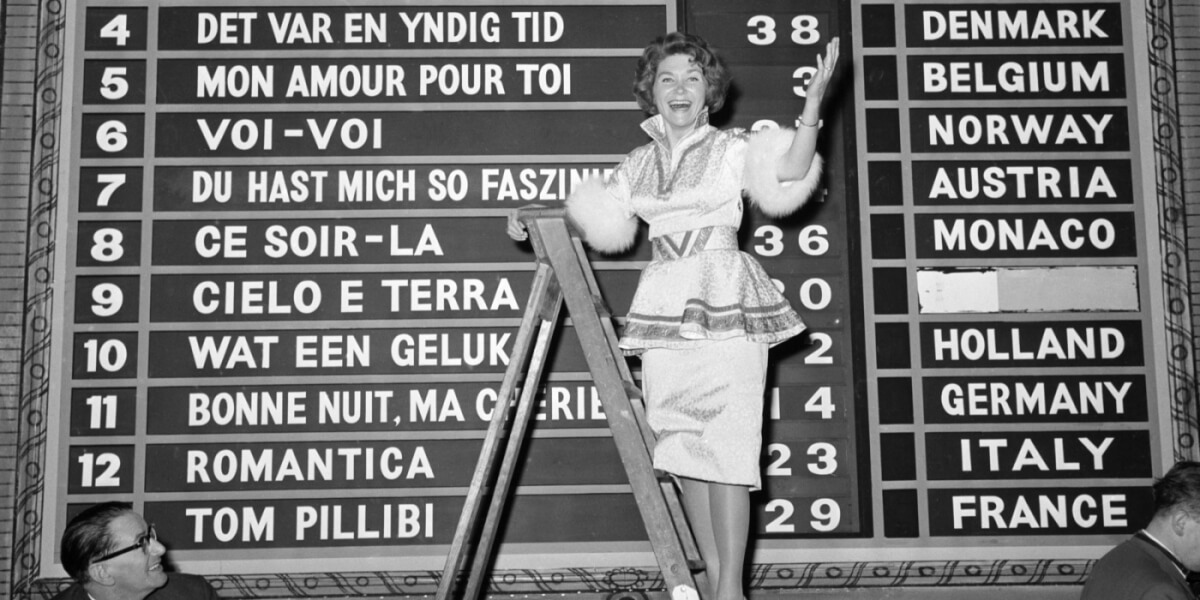The Eurovision Song Contest: How The Voting System Really Works

Table of Contents
The Two-Part Voting System: Jury and Televoting
The Eurovision Song Contest utilizes a two-pronged approach to voting, ensuring a balanced representation of professional opinion and public preference. This dual system comprises a professional jury and public televoting. Both contribute equally to the final Eurovision score.
-
Jury Voting: Each participating country selects a five-member jury. These juries consist of individuals with diverse musical backgrounds and expertise, ensuring a broad range of perspectives. Crucially, these jury members have no connection to any of the competing artists, preventing bias and guaranteeing a fair assessment of the performances. Their individual scores are compiled to generate a national jury ranking.
-
Televoting: The public plays a vital role in determining the winner through televoting. Viewers in each participating country can vote for their favorite song via telephone, SMS text message, or a dedicated Eurovision app. The specific methods vary depending on the country, but the process is designed to be accessible and secure. Robust security measures are implemented to prevent manipulation and ensure a fair reflection of public opinion. These measures include systems to prevent mass voting from single sources and independent verification of votes.
-
Weighting: The Eurovision voting system ensures fairness by giving equal weight to both jury and televoting scores. This prevents either public opinion or expert judgment from dominating the results, producing a Eurovision score that represents a balanced view of the performances.
The Point Allocation Process: From Scores to Show
The process of transforming individual scores into the final Eurovision points is both meticulous and dramatic. Let's break down how each country's points are calculated and revealed.
-
National Ranking: Each country's jury and the televoters independently rank all participating songs from 1 to 26 (or fewer if less than 26 countries are competing). The song ranked highest receives the number 1, the second-highest number 2, and so on.
-
Point Distribution: Points are allocated based on these rankings. The highest-ranked song (rank 1) receives 12 points, the second-highest (rank 2) gets 10 points, the third-highest (rank 3) gets 8 points, and so on down to 1 point for the tenth-ranked song. No points are awarded for songs ranked 11th and below.
-
Score Reveal: To build suspense and excitement, the points awarded by the jury and televoters are announced separately during the live broadcast. The commentators often highlight interesting trends and unexpected results, adding another layer of engagement for viewers worldwide.
-
Total Score: The final Eurovision score for each country is the sum of the jury and televoting points. This final tally determines the overall ranking and ultimately crowns the Eurovision champion.
Preventing Voting Irregularities
Ensuring fair play and preventing manipulation are paramount to the integrity of the Eurovision Song Contest. Several measures are in place to safeguard the voting process:
-
Independent Auditors: Independent auditors are involved throughout the voting process, verifying the accuracy and integrity of the data. They scrutinize all aspects of the system, from vote collection to point allocation, providing an extra layer of assurance that the results are legitimate.
-
Security Protocols: Strict security protocols are implemented to prevent fraud or hacking attempts. These protocols include robust systems to detect and prevent mass voting from single sources, as well as encryption and other security measures to protect the data's integrity.
-
Neighboring Country Rule: To prevent bias and potential manipulation, countries are prohibited from voting for themselves or their neighboring countries. This rule helps mitigate any influence of regional alliances or political considerations.
Understanding the Impact of the Voting System
The Eurovision voting system, while designed for fairness, is influenced by various factors that can shape the results.
-
Political Voting: The phenomenon of "bloc voting," where countries consistently vote for each other, is a recognized aspect of the contest. While often debated, it's a factor that influences the final Eurovision score.
-
Song Popularity: The quality and appeal of the song are significant factors influencing both jury and televote scores. Catchy melodies, powerful lyrics, and relatable themes resonate strongly with both audiences and juries.
-
Performance Quality: The overall performance, including stage presence, visuals, and artistic elements, plays a crucial role. A captivating performance can sway both juries and the public, boosting a song's chances of success in the competition.
Conclusion
The Eurovision Song Contest voting system, while seemingly complex, is designed to balance professional judgment with public opinion. Understanding the intricacies of jury voting, televoting, and point allocation reveals a sophisticated process aiming for fairness and excitement. By appreciating the nuances of the Eurovision voting system, you can enjoy the contest on a deeper level, appreciating not just the dazzling performances, but the intricate process that leads to the ultimate winner. So, next time you tune in, you'll be fully equipped to understand the Eurovision score, and appreciate the journey to find the best Eurovision Song Contest entry!

Featured Posts
-
 Saving Jersey Battle Of Flowers One Mans Fight To Preserve A Tradition
May 19, 2025
Saving Jersey Battle Of Flowers One Mans Fight To Preserve A Tradition
May 19, 2025 -
 The Power Of Honest Conversation Why Dr John Delonys Podcast Connects With A Large Audience
May 19, 2025
The Power Of Honest Conversation Why Dr John Delonys Podcast Connects With A Large Audience
May 19, 2025 -
 Analyzing Coach Mike Youngs Future At Virginia Tech
May 19, 2025
Analyzing Coach Mike Youngs Future At Virginia Tech
May 19, 2025 -
 Uber Kenya Improved Earnings For Drivers And Couriers Plus Customer Cashback
May 19, 2025
Uber Kenya Improved Earnings For Drivers And Couriers Plus Customer Cashback
May 19, 2025 -
 Orlando 2025 Tourism Event Photo Highlights From The Orlando Sentinel
May 19, 2025
Orlando 2025 Tourism Event Photo Highlights From The Orlando Sentinel
May 19, 2025
